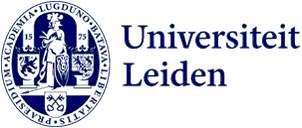
Gerrit Dusseldorp joins Liveable Planet Interdisciplinary Programme: ‘Archaeologists can provide the time-depth perspective’
With the retirement of Wil Roebroeks, Gerrit Dusseldorp will take his place as the archaeological representative in the Liveable Planet Interdisciplinary Programme as an Associate Professor. An expert on the behaviour of early human hunter-gatherers, he will look at the interaction between humans and planet through time. ‘Modelling past land-use might give us better input for our climate reports.’
Landscape modification
Given that Dusseldorp’s appointment to Liveabe Planet was only decided upon recently, he already has an impressive amount of ideas to work on. ‘First of all, I have to talk to my Liveable Planet colleagues to develop interdisciplinary initiatives with them. But I’ve got already some ideas that are highly relevant.’ The Intergovernmental Panel on Climate Change (IPCC) regularly reports on climate change. ‘The IPCC in these reports assumes that prehistoric vegetation represents the natural state of vegetation. As archaeologists we, however, know that landscape modification by humans has begun in the deep past. Modelling past land-use to provide reliable input for climate is helpful for future reports. It will make projections more accurate.’
Resilience
Another perspective Dusseldorp wants to propose is to look at the resilience of people living in rural and marginal areas. ‘I am hoping to employ my research in hunter-gatherer land-use in South-Africa, and connect that with current day rural peoples. Are these peoples resilient in the face of environmental and climate change? And how do they deal with this?’ He immediately adds that this is something that he needs to discuss with his Liveable Planet colleagues.

Archaeology under threat
Finally, Dusseldorp is very much aware of the threat that climate change poses for archaeology itself. ‘Rock art preservation is influenced by atmospheric changes, pollution, and sea level rise. Moreover, one of our most important techniques, radiocarbon dating, is becoming less reliable due to the high levels of CO2 in the atmosphere. Overexploitation of the earth is a problem. Not just for us as citizens, but also for as scientists.’

Heads in the sand
Asked whether Dusseldorp will become more of a activist scientist in his new role, he chuckles. ‘I am really tempted to block the A12 motorway [a recurring climate protest in the Netherlands], especially now that they use watercannons to break it up. It is very hot today.’ He sobers his tone. ‘I feel that it may will put off people from my work if I am framed as an activist or alarmist, so I think it is important to demonstrate the activists really have a point and we all of us should do more. I do feel very strongly that we are basically sticking our heads in the sand in regards to the climate change issue.’
Connections
As part of the multidisciplinary research group Liveable Planet Dusseldorp seeks to be a connection between the project and his archaeology colleagues. ‘At our Faculty there are a lot of people working on topics that are linked to the Liveable Planet theme. Contact me if you are interested! We can provide the time-depth to the issues that we face today.’
About Liveable Planet
Social and ecological systems are heavily intertwined. Crises such as climate change and the loss of biodiversity do not only threaten nature, but also human wellbeing and societal development. The Liveable Planet programme unites alpha, bèta and gamma researchers from across Leiden University to address these sustainability issues together and to integrate them into our educational programmes.
See for more information the website of Liveable Planet.
Career Committee
The appointment of Gerrit Dusseldorp was one of the first staff appointments the Faculty Career Committee was involved in. The Career Committee has a role in promotions of current academic staff to higher positions. This concerns internal promotions from, for example, Assistant Professor to Associate Professor. The committee advises the Faculty Board on internal nominations, based on the UFO profiles and the 'Guidelines for the appointment and promotion of academic staff', with special attention to Recognition and Appreciation.
See for more information the website of the Career Committee.
